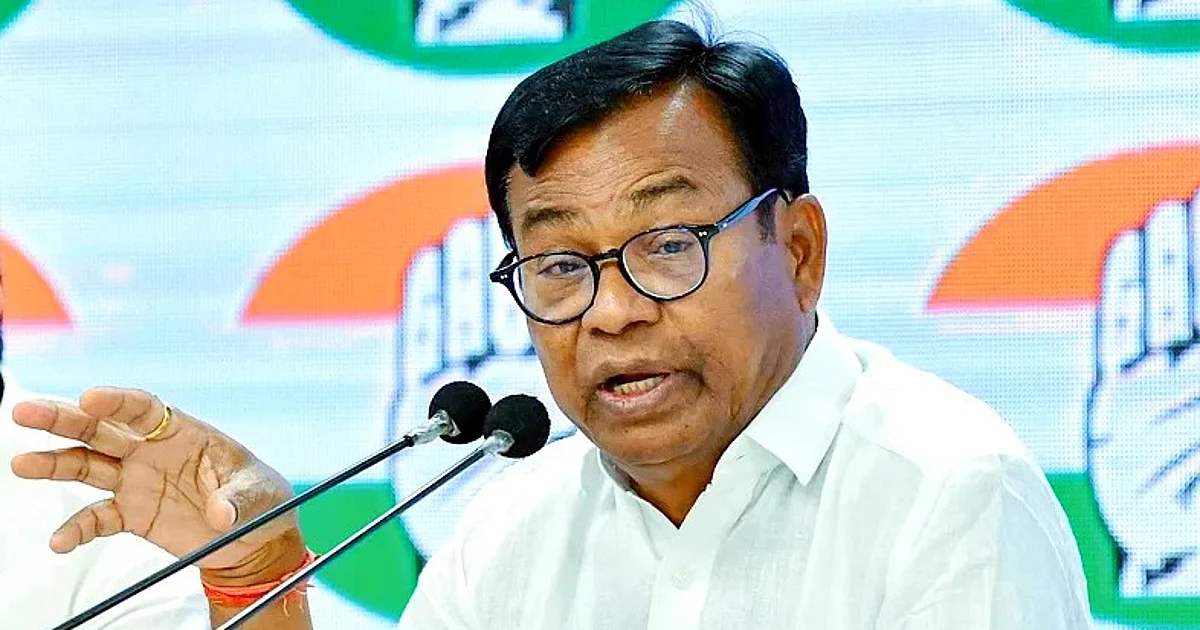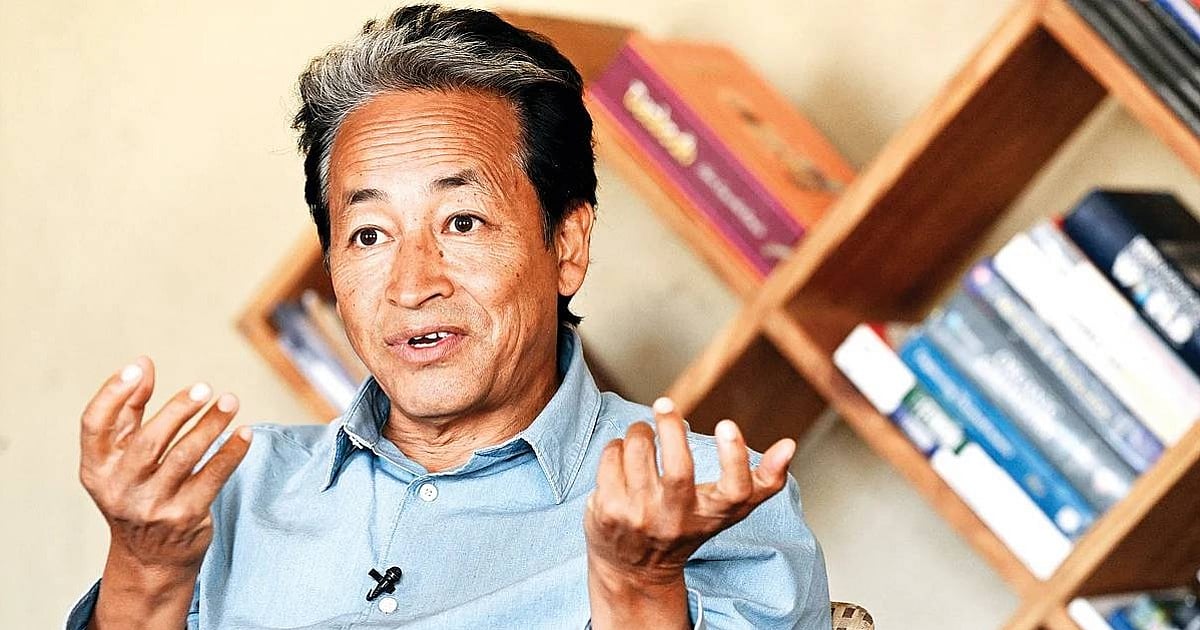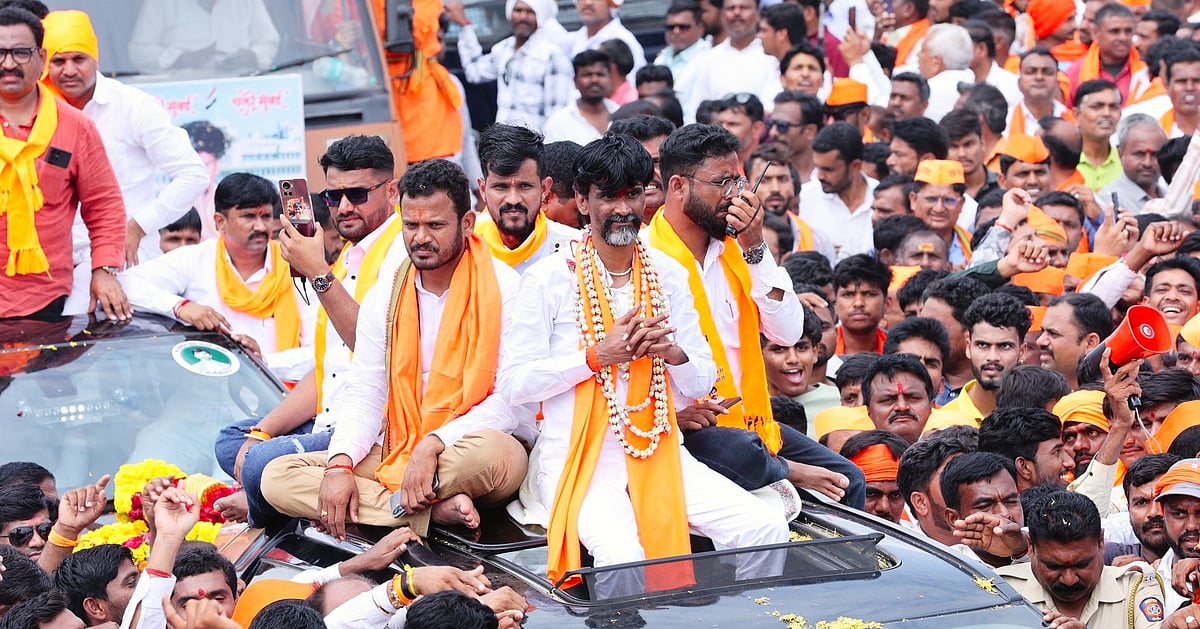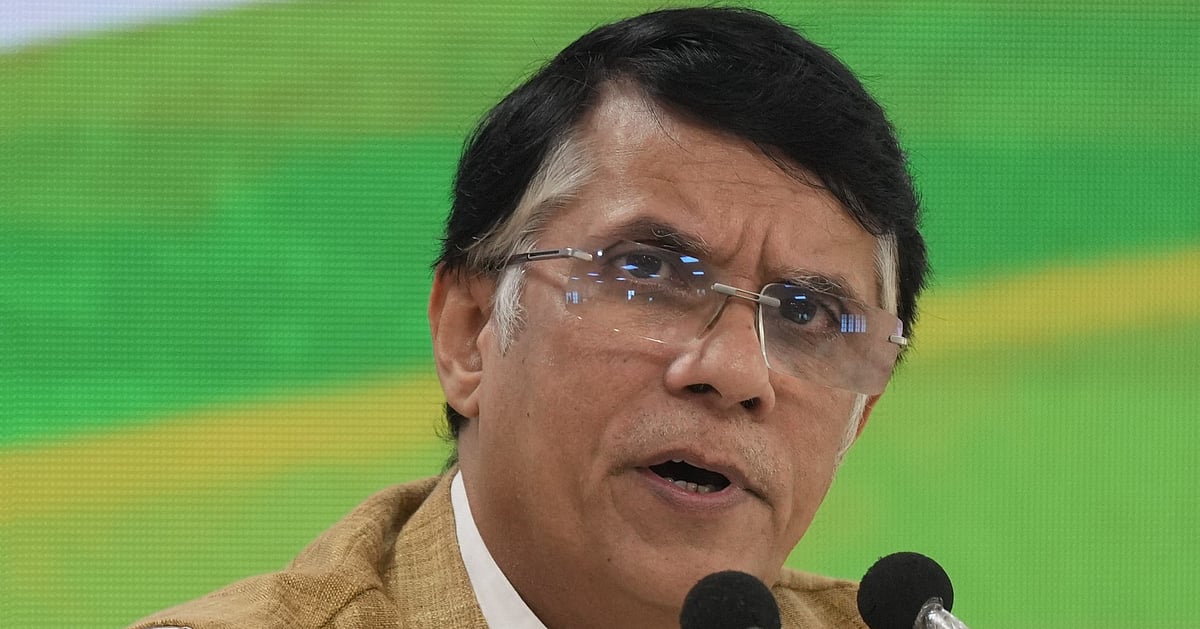National News
‘This fight will continue, no matter what’

Odisha assembly elections are still four years away, yet the state’s political scenario is already a witness to increased activity – especially around issues related to the safety of women. In the last one year, there has been a disturbing increase in crimes against women, including rapid increase in rape and gangrape cases. The most recent tragedy occurred in Balasore, where a college student died of self-explosion after facing sexual harassment.
The case created a political storm across the state. The Congress party replied by calling the statewide bandh. The Biju Janata Dal (BJD), despite being the largest opposition party in the assembly, struggles to offer decisive leadership on the issue or effectively give a channel to public outrage.
The growing public sentiment in favor of the Congress was seen during the Samvidhan Bachao rally held in Bhubaneswar on 11 July. Voting was on a large scale – so much that the local media, often indifferent to Congress events, could not ignore it.
Herzinder Speak from Devotee Charan DasNewly appointed president of Odisha Pradesh Congress Committee. Part:
Despite the numbers in the assembly, the Congress has emerged as a major protest on the ground. How did you achieve this?
We were able to gather people because the issue we raised were real and resonated with the public. While we do not have many MLAs in the Odisha Legislative Assembly, whatever we have is firm. Our limited representation is a single female MLA (Sophia Ferdus), whose sensitivity and understanding of women’s issues is invaluable.
The situation in Odisha is worrying-Bal interview cases, including collective-blessings, are growing without stopping. These are not just isolated events; Thousands of women and children have gone missing. We started highlighting these issues from the first day.
As soon as I took charge, I ran on the ground – quite literally. I arrived from Delhi and launched a Shankalap Padayatra from Bhubaneswar Airport. In the next three days, we lasted 67 km to reach Puri. About 5,000 people attended that march.
Did you get hurt during that journey?
Yes, my hand was fractured in early March. There was a large crowd; Everyone wanted to congratulate me with a bouquet. In anarchy, I lost my balance and fell, broke my right hand.
But I did not let it stop. I only continued to walk with a fracture hand, only basic pain reliever. I went in all three days. On the fifth day (after injury), I underwent surgery. Still, I am not completely cured – I still cannot lift my hand completely.
That moment created a feeling of faith among the people. It sent a clear message that this fight would continue, it does not matter. Everyone – MLA and grassroots workers have completely thrown themselves in the same struggle.
There have been reports that your MLAs had to face harassment inside the assembly.
Yes, all our MLAs were suspended from the assembly (on 25 March). In response, he began a sit-in protest. But around 2.00 pm, they were forcibly removed and dumped on the road outside. Instead of intimidating us, this incident further strengthened unity among our MLAs and activated our party workers. However, it was really disappointing, however, the Biju was the inaction of the Janata Dal. Despite being 51 MLAs, he failed to take a stand or play the expected role from them.
Why do you think the BJD is unable to act as a true opposition, despite being the second largest party?
Because they bear the burden of 24 years of rule. He is seen as an alliance with the BJP, not as the force of resistance. Recently, they have shown some activity around women’s issues – but it appears to be more symbolic than honest. If they actually raise these issues and firm, the government may fall in the next assembly session. But the truth is that they will not allow this to happen.
The Samvidhan Bachao rally addressed by the Lok Sabha leader of Rahul Gandhi and Congress President Mallikrajun Kharge in Bhubaneswar held a strong discussion. Why has it become such a thing?
That rally was a huge success. We took RahulYesMessage – their constant stance to protect the size and constitution by their India joint travel and to ensure social justice – in a focused manner. We made short video clips showing their conversation with women, children, laborers, small traders and drivers, and broadcast them widely. People actually moved beyond their honesty and relationship with common citizens. Enthusiasm was visible. We were expecting around 60,000 people, but more than a million changed. In fact, the crowd outside the venue was doubled by the inner shape.
A male nameYesSpeech of speech – especially about the plight of tribals, Dalits, women and concentration of money in the hands of corporates like Adani – left a strong impression on people.
Nevertheless, many people are asking if this mass voting can actually translate into votes.
The answer lies in the organization. If you have an active ground level structure, such public support can be completely converted into votes. The first step is to create a wave of energy and attention. A male nameYesThe journey made that speed. And it is important to note that it was not a staging or artificially collected crowd – these were actually gathered to supporters.
Now we are insisting on reconstructing and activating the organization. Earlier, people were not even talking about the Congress. Today, we are part of every political dialogue – often the first party people consider before the BJD or BJP. This revival has created enthusiasm within the party. Those who had removed themselves are returning. Those who were inactive have become active again, and active are now hyper-eneurous.
In fact, now the office is a healthy competition to become beer. Many are proudly announced, “We have been with Congress for 20-30 years.” The party is alive again – and is getting stronger by the day.
You mentioned earlier that the leaders of other parties are joining the Congress. Is this happening on an important scale?
Yes, of course. Many ground level workers have already joined us. Is it encouraging that the major figures of other parties – including some of the ruling party – are reaching out. They look at the tide and believe that the Congress can provide a reliable option. There is a growing feeling of hope around us.
How effective did Odisha Bandh make Congress on 17 July?
It was a historical moment. Odisha has not seen such a complete and easy bond in the last 20-25 years. Roads were empty, traffic came to a stop and train services were interrupted at 16–17 places. The unions of the traders voluntarily supported it. Government offices across the state were largely non-functional. From the High Court to the local district courts, the lawyers extended full support. Employees union and intellectuals stood with us. The scale of participation and public enthusiasm was unprecedented.
Did this react to the government?
Absolutely. On 19 July, we announced a grievance redressal mechanism for women. Now the government has suddenly announced that they will implement a similar system in every school and college. It is clear that they are feeling pressure and foot to respond to public sentiment.
The truth is that many people in the present government lack administrative experience. So they are struggling to respond effectively. But our movement has forced them to start thinking – and acting.
National News
Sonam Wangchuk accused the strategy of ‘Banana Republic’ as the authorities retrieved the Unive. land

Two days ago on 31 August, Ladakhi Climate activist and teacher Sonam Wangchuk posted a video on X, which confirmed that the local officials were targeting their Himalayan Institute of Alternative Teaching (HIL) by canceling the lease on the land allotted to the university seven years ago.
Describing the move as a sign of ‘Banana Republic’ rule, Wangchuk said that the Ladakh administration had notices that the government would show that the government would take back the land and demolish the premises built in five years. He questioned the time of this action, given that it did not happen in the last six years, but in October there was a coincidence with the upcoming Hill Council elections.
Wangchuk said, “Ladakh’s Hill Council promised the sixth schedule security measures in its last manifesto, but now they want to win the election without fulfilling that promise. I will not let this happen to the people of Ladakh,” Wangchuk said.
He alleged that from arrests to threats ranging from arrest to cancellation of land lease, and claimed that the authorities were now considering including the ED (Enforcement Directorate). Wangchuk welcomed an ED investigation, saying that it would highlight the work of eight years of the institute without salary and their personal financial contribution.
Wangchuk said that while Hial enjoys tax exemption, he himself pays income tax as a service for the nation. He also claimed that half a million rupees have been donated to the Ladakh UT government in its formation.
Climate activist attracted national attention with him Indefinite hunger strike In March 2024, when he began talks between leaders of Civil Society of Ladakh and Union Ministry of Home Affairs (MHA) when he came to a dead end of constitutional security measures for Ladakh.
Putting the issue forward, he and hundreds of followers also marched a leg for Delhi, forcing MHA to resume Ladakh dialogue in December 2024, although they remain inconclusive.
National News
Fadnavis ends rapidly after Jarang

Maharashtra Chief Minister Devendra Fadnavis on Tuesday, while facing the move of activist Manoj Zerennge to call his five -day fast on the demand of Maratha quota, said the government got a solution in the interest of the Maratha community.
Speaking to reporters in Nagpur, Fadnavis said that his government always focuses on the welfare of the Maratha community.
Jarang, who started his hunger strike on August 29, closed the protest on Tuesday afternoon when the Maharashtra government accepted most of its demands, including giving certificates of eligible Maratha Kunbi caste, which would make them eligible for reservation benefits available to other backward classes (OBCs).
The 43-year-old activist accepted a glass of fruit juice introduced by senior BJP minister Radhakrishna Vicky Patil, who heads the Cabinet Sub-Committee on Maratha reservation at Azad Maidan in South Mumbai, who mark the end of their fast.
National News
Did BJP make another self-target with allegations against Pawan Khera?

Gandhi’s voter Adhikar Yatra, who prepared Bihar to rally against the alleged electoral manipulations, has received traction in the midst of these revelations. On the last day of the yatra, on Monday, he warned that the imminent “hydrogen bomb” disclosure would highlight how the BJP allegedly collides with ECI to purify the opposition-dominated voters.
This line has gearted for elections in the form of beer, with opposition parties such as the President Janata Dal (RJD) resonating concerns over irregularities, including unintended entries for phantom voters and dead individuals.
Adding irony, Malavia, possibly there is a history of leveling the allegations of the architect of this latest Salvo, which were later debated or contested. For example, in August, he accused former Congress president Sonia Gandhi of voter fraud, claiming that his name appeared on the 1980 electoral role, before he receives Indian citizenship.
However, the document he shared was mentioned the ‘National Capital Region of Delhi’ (NCT), a word only in 1991 – a decade later – a decade later – was leading to wide claims that it was lattice or photoshopped. The Congress rejected it as a “good photoshop”, in which the Trinamool Congress accused Malavia of forgery.
In January, during the Delhi Assembly elections, Malavia and other BJP leaders accused the wife of Aam Aadmi Party (AAP) MP Sanjay Singh of being present in dual voter lists, motivating Singh who rejected the charge as “lies” and claims of election fraud.
These incidents were rapidly counter, they were exposed as exaggerated or false with pole bodies and fact-checks, such as Malavia’s West Bengal faced an investigation like fraud claims, but lacked the decisive evidence. Critics argue that such a strategy depicts the BJP’s strategy to protect against opposition criticism, but often destroys public belief in the electoral process and makes the party itself less reliable.
The Khera dispute is widespread implications for India’s democracy. As Gandhi’s campaign has gained momentum, it immediately asks for ECI reforms, including transparent voter list audit and similar data access to all parties. With Bihar elections, it can bold the spat voter spirit, especially in a state stricken by the historical allegations of booth-capturing and list-keeping.
The ECI silence on these dual entries only demands bolters for accountability. Finally, what started as a BJP opposition has turned into a wound of self-ethos, strengthens a lot of vote. Chori ‘ The story demanded to destroy and expose the cracks in this system that could affect future elections.
With PTI input
-

 IPL3 months ago
IPL3 months ago‘Any nahhi numba hai’: Furious MS Dhoni loses cool, CSK shouts at players – Watch. Cricket news
-

 Sports3 months ago
Sports3 months ago‘Is MS Dhoni fit or not?’ Cricket news
-

 IPL3 months ago
IPL3 months agoExplained: Why Punjab Kings will get two opportunities to reach IPL 2025 final
-

 IPL3 months ago
IPL3 months agoAnil Kumbal on Shubman Gill: ‘Captaining India is different from the captaincy of a franchise’. Cricket news
-

 IPL3 months ago
IPL3 months agoIPL 2025: Hardik Pandya hit the unique ‘Triple Century’ in T20S.
-

 IPL3 months ago
IPL3 months ago‘No, you can’t take it …’: Shreyas Iyer’s bold statement. Cricket news
-

 National News3 months ago
National News3 months agoIndian Youth Congress started fellowship program for young lawyers
-

 Sports3 months ago
Sports3 months agoHow Rohit Sharma’s bad form with BAT is damaging Mumbai Indians’ IPL 2025 campaign
